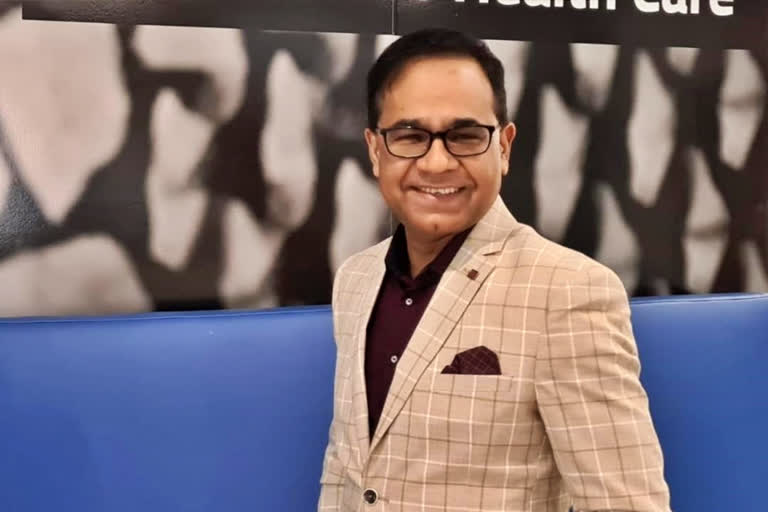Haridwar: Dr. Angraj Khillan used to sell prashad, Gangajal, and vermilion at the Ganga ghat in Haridwar as a student to fund his education. Today, he has become a pediatrician who is changing and saving lives through his services. Angraj will be honored with the Australian of the year award 2023 on Jan. 26 for providing key healthcare services not only in India but in several other countries as well.
Angraj recalled his childhood days in Haridwar. The doctor said, "whenever I go to Haridwar, I always meet my friends and recall bunking classes, going to watch movies on cycles with them." As a teen, he used to be a hawker on holidays in order to support his seven-member family and his education.
He is the youngest in his family. His father owned a flour mill where he used to sit after school. Angraj studied science at Bhalla college in Haridwar, which he says was the first step to fulfilling his dream of becoming a doctor. He alludes to his entry into medicine stream to luck as well.
I was lucky enough to clear the Combined Pre-Medical Test (CPMT) without much formal training, after which I got admission to Lucknow Medical College where I completed my MBBS and MD, Angraj said. After completing my education, I served in Ram Manohar Lohia Hospital in Delhi for almost three years before moving abroad in 1999, he said.
Before moving to Australia in 2004, Angraj worked as a child specialist in Saudi Arabia, Nepal, and the UK. It's been 18 years since I have started working in Australia, and just like in India, people here too have many misconceptions about medicines and avoid taking even necessary medicines, he said.
After closely studying the reasons why people do not follow medical advice, I started working on it individually. Later in 2018, I founded a non-profit organisation Healthcare Awareness Society of Australia (HASA) where we started providing health awareness for free, he said.
Angraj further said, "when I started diagnosing multicultural patients here in Australia, I noticed people do not follow proper medical advice. I studied it thoroughly and found that people with different cultural backgrounds have different beliefs related to medicines. For example, people of a certain community in India will not consume any medicine which has any element of cow meat in it. That is when I noticed that multicultural societies here need to be provided with basic health education. "
"That is when I started working on this issue individually. Being born in India, I am familiar with many languages and as I have worked in different countries, I can understand some international languages as well. But being an individual, I had limited resources. That is when I founded HASA to educate multicultural people in Australia. More doctors started joining me with time and we started providing health awareness campaigns for free. These campaigns were held also held virtually to provide basic health education to people.
Upon being asked about how he could help enhace healthcare facilities in India and in Uttarakhand particulary, Angraj said, "one of the biggest problems faced by Uttarakhand in terms of medical facilities is its hilly terrain. It becomes difficult to provide healthcare in some parts of the state. In order to improve the medical facilities, we must first improve road connectivity."
Also, to maintain proper health, people must be provided with basic health education. I still believe, prevention is better than cure. Therefore, people must maintain their personal hygiene. My suggestion to the Uttarakhand government is that they must focus more on prevention than spending money on the cure. And HASA is always willing to create healthcare awareness not only in Uttarakhand but in the entire country. To enhance the health sector in India, we need to develop more strong healthcare system in India which will avoid any intentional or unintentional mistakes, he said.
This award is given to just one person in a year. This is not just an award for me but a responsibility to take a step further and do more in this field.



